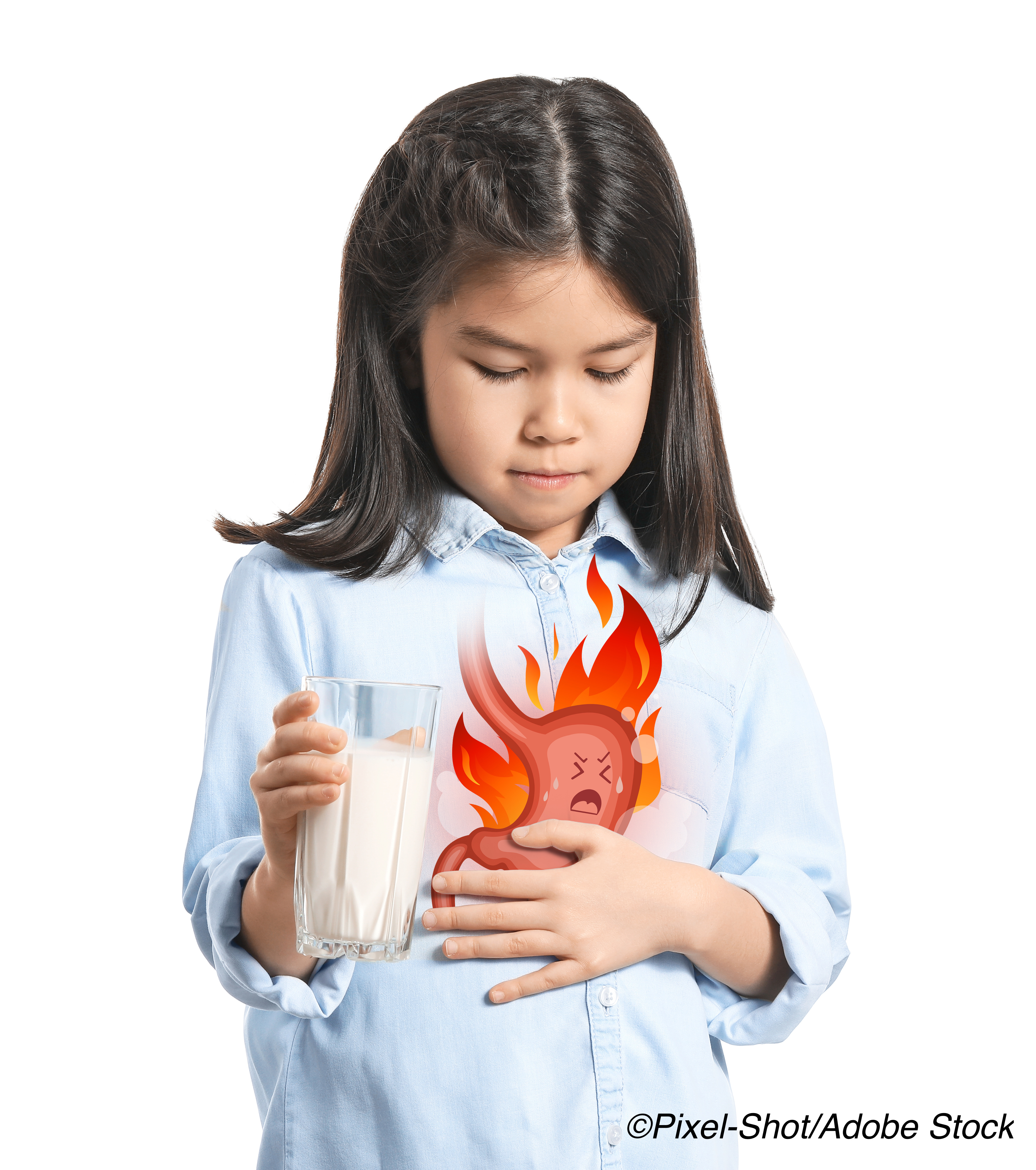Children who took proton pump inhibitors (PPIs) for gastrointestinal tract disorders showed a 57% increased risk for asthma compared to those who did not take the drugs in a nationwide registry study from Sweden.
The propensity score-matched cohort trial included close to 90,000 pairs of children and adolescents who were or were not new PPI users from 2007 through 2016, matched for age and propensity score.
The observed asthma risk was significantly increased for all age groups of children and adolescents (≤17 years), but it was greatest among infants and toddlers, reported researcher Yun-Han Wang, MSc, BPharm, of Karolinska Institute, Stockholm, and colleagues.
Their study findings were published online Feb. 8 in JAMA Pediatrics.
“The risk increase was similar regardless of the cumulative duration of PPI treatment,” they wrote. “An increased risk was observed for asthma occurring early after treatment initiation, as well as later.”
Wang and colleagues added that the findings were robust in sensitivity analysis, “including an as-treated analysis and high-dimensional propensity score matching.”
They noted that the use of PPIs among children has increased greatly over the last decade, with both off-label and prolonged use being relatively common among children and teens.
Emerging data from observational studies of PPI use among women who are pregnant indicates that exposure to PPIs may be associated with asthma among offspring.
“Dysbiosis and disturbance of the human microbiome is known to provoke asthma flares, and PPIs have been reported to alter gut and lung microbiomes through inhibition of gastric acid secretion,” they wrote.
But they added that just one previous retrospective cohort study has explored asthma risk associated with PPI — and antibiotic use — in children, focusing on infants exposed to PPIs in the first 6 months of life.
In that study, researchers reported a 41% increased risk for asthma associated with PPI use and a two-fold greater risk associated with antibiotic use. They concluded that “acid-suppressive medications and antibiotics should be used during infancy only in situations of clear clinical benefit.”
The current study by Wang and colleagues included 80,870 child and adolescent in Sweden who initiated PPI use paired with an equal number of children who did not, matched for age and propensity score.
The primary analysis examined the risk of incident asthma with a median follow-up of 3 (interquartile range, 2.1-3.0) years. Cox proportional hazards regression was used to estimate hazard ratios (HRs).
Among the pairs (63.0% girls; mean [SD] age, 12.9 [4.8] years), those who initiated PPI use had a higher incidence rate of asthma (21.8 events per 1,000 person-years) compared with those who did not take the drugs (14.0 events per 1,000 person-years), with an HR of 1.57 (95% CI, 1.49-1.64).
Among the other main findings:
- Asthma risk was significantly increased in PPI users across all age groups and was highest for infants and toddlers (HR of 1.83; 95% CI, 1.65-2.03 in those younger than 6 months of age and HR, 1.91; 95% CI, 1.65-2.22 among those age 6 months to 2 years: P<0.001 for interaction).
- The HRs for individual PPIs were 1.64 (95% CI, 1.50-1.79) for esomeprazole, 1.49 (95% CI, 1.25-1.78) for lansoprazole, 1.43 (95% CI, 1.35-1.51) for omeprazole, and 2.33 (95% CI, 1.30-4.18) for pantoprazole.
- In analyses that included timing of asthma onset after PPI initiation, the HRs were 1.62 (95% CI, 1.42-1.85) for 0 to 90 days, 1.73 (95% CI, 1.52-1.98) for 91 to 180 days, and 1.53 (95% CI, 1.45-1.62) for 181 days to end of follow-up.
- The association was consistent through all sensitivity analyses, including high-dimensional propensity score matching (HR, 1.48; 95% CI, 1.41-1.55).
Wang and colleagues noted that their findings were similar to two recent meta-analyses of observational studies, which showed an increased asthma risk among the offspring of women who took PPIs while pregnant, and to the single retrospective cohort study involving mostly infants.
They wrote that their research provides “to our knowledge, the first comprehensive investigation of the association between PPI use and risk of asthma in a large and unselected nationwide population of children and adolescents across the entire age range of pediatric care using advanced analytical methods.”
“One hypothesized underlying mechanism linking PPIs to asthma is believed to include PPI-mediated interference of the balance between the symbiotic and pathological microbial species in the gut and lung, subsequently leading to asthma through hyperactivation of helper T2 cell–dominated immune responses and overproduction of inflammatory cytokines resulting in airway inflammation,” they wrote.
They further noted that since the association between PPI use and asthma risk in their study was seen within 90 days of PPI initiation, immunity dysregulation “would have to occur through a rapid change of the biome.”
“This possibility is supported by previous in vivo studies reporting that substantial disruption of microbial composition and diversity in the gut can occur within 4 weeks after PPI treatment,” they wrote. “Alternative mechanisms could also be possible; for instance, PPIs might damage lung tissue directly, given that PPIs have been linked to impaired endothelial function and accelerated endothelial senescence in a previous study.”
-
Children who took proton pump inhibitors (PPIs) for gastrointestinal tract disorders showed a 57% increased risk for asthma compared to those who did not take the drugs in a nationwide registry study from Sweden.
-
The observed asthma risk was significantly increased for all age groups of children and adolescents (≤17 years), but it was greatest among infants and toddlers.
Salynn Boyles, Contributing Writer, BreakingMED™
Funding support was provided by the Swedish Research Council and Frimurare Barnhuset Foundation and an investigator grant from the Strategic Research Area Epidemiology program at Karolinska Institute.
Researcher Jonas Ludvigsson reported work for the Swedish IBD quality register, which receives funding from Janssen Global Services, LLC. Researcher Henrik Svanstrom reported receiving consulting fees from Celgene Corporation and being employed by IQVIA unrelated to this study.
Cat ID: 138
Topic ID: 85,138,730,17,100,138,637,142,192,63,925



